Babylon’s Li Jun Li talks on-screen romance with Margot Robbie – including ‘graphic’ scene cut from script
Exclusive: "I'm honoured to portray someone who's queer, a bad-ass and representative of such an iconic person in history!" says the rising star of her character, loosely based on Anna May Wong
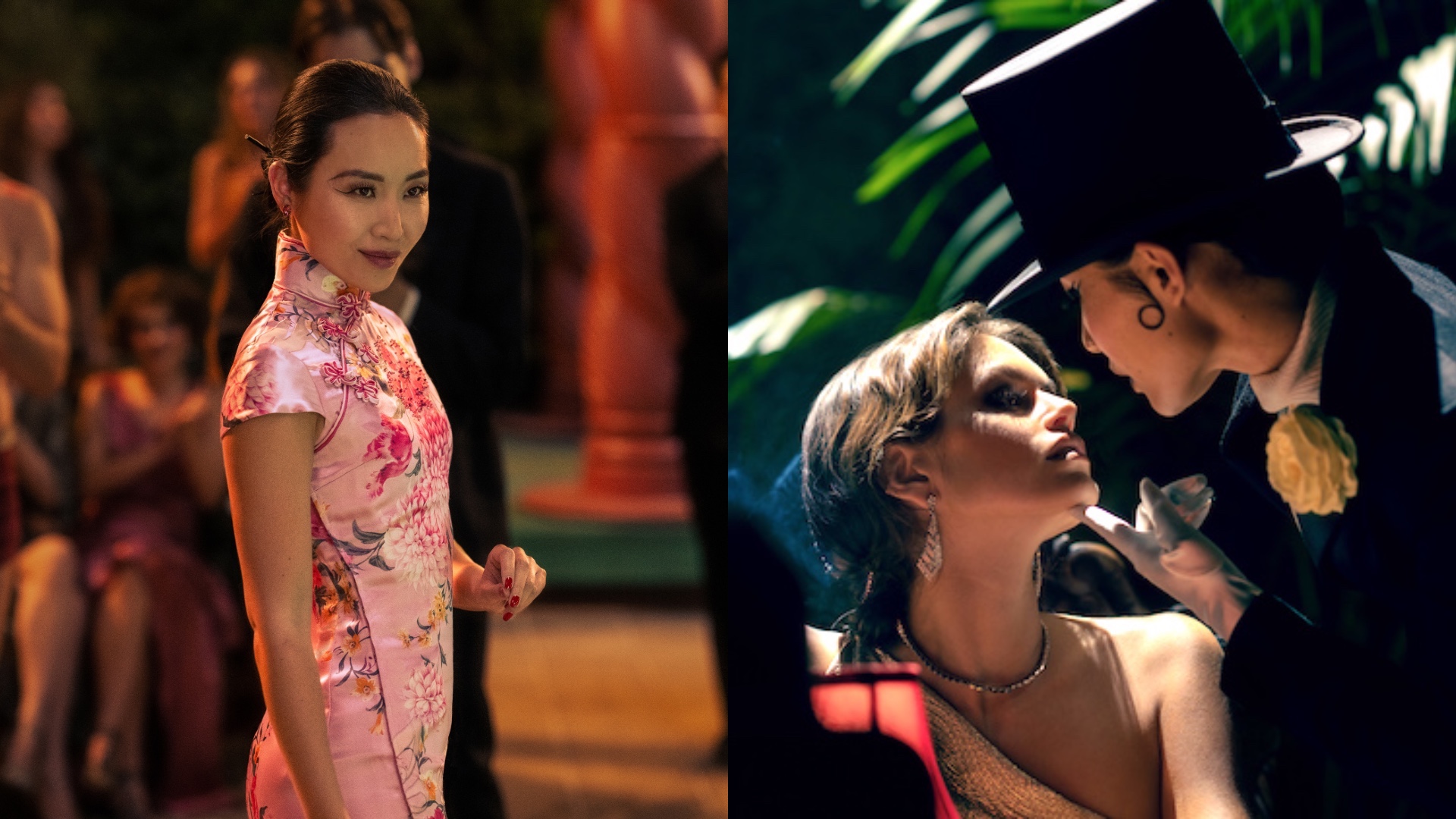
“I haven’t had opportunity to enjoy London – other than the commute from the airport!” deadpans Li Jun Li, who plays a key role in Babylon, the new Brad Pitt and Margot Robbie-starring blockbuster about 1920s Hollywood. Such is the life of a rising star: it’s the morning after the film’s premiere (“we did go out after – jet lag pushed us to delirium!”) and tomorrow, Li and her colleagues will do it all again in Paris.
But the fun actually started before the cavalry reached Europe. “We flew from LA yesterday – Margot, Diego [Calva] and I travelling together – and we were being so loud!” laughs Li. “Someone moved their laptop away from us in the lounge! We were like children.”
In fact, the party dates back further still. It officially started with a Babylon set piece – one of the most memorable in modern cinema – that opens the film: a wild soiree at a movie star’s mansion. Think The Great Gatsby and The Wolf of Wall Street; think a wild bacchanalia of drugs, orgies, and ridiculous costumes – plus a cameo from an elephant. In attendance are a trope of aggressively ambitious, deliciously charismatic Hollywood players riding the wave of the Roaring 20s and the transition from silent-era film to the talkies.
Pitt plays Jack Conrad, an ageing leading man; Robbie plays Nellie, a fiery newcomer with a touch of 00s Lindsay Lohan, and Li plays Lady Fay Zhu, a magnetic entertainer inspired by real-life Chinese-American starlet Anna May Wong, who exudes an ambiguous sexuality and gender-fluid style à la Marlene Dietrich. Li – known for roles in shows like Evil and The Exorcist – identifies as straight, but is “honoured to portray someone who’s queer, and a bad-ass, and representative of such an iconic person in history.” Here, she discusses Lady Fay’s evolution, the importance of representation, and sharing a set with temperamental snakes!
Can you shed light on whether Anna May Wong was LGBTQ?
Sure. There’s no confirmation of whether she was queer. That’s kind of what gave us the creative freedom, when Damien actually wrote Lady Fay, to [just] be loosely inspired by Anna May. I know in history there were rumours, but it was never confirmed. Certainly, Lady Fay is open about what she wants and how to get it!
I’m all for straight actors playing LGBTQ roles, when they do it well, which I felt you did. But how did you approach that – because we do see straight actors criticised for descending into stereotype…
I didn’t go in thinking: ‘I’m going to play someone who’s queer.’ I play her as a human being with human desires. Whether it’s career choices or romantic interests. Like any person, gay, straight, any queer person – you go after what you want, and navigate the obstacles.
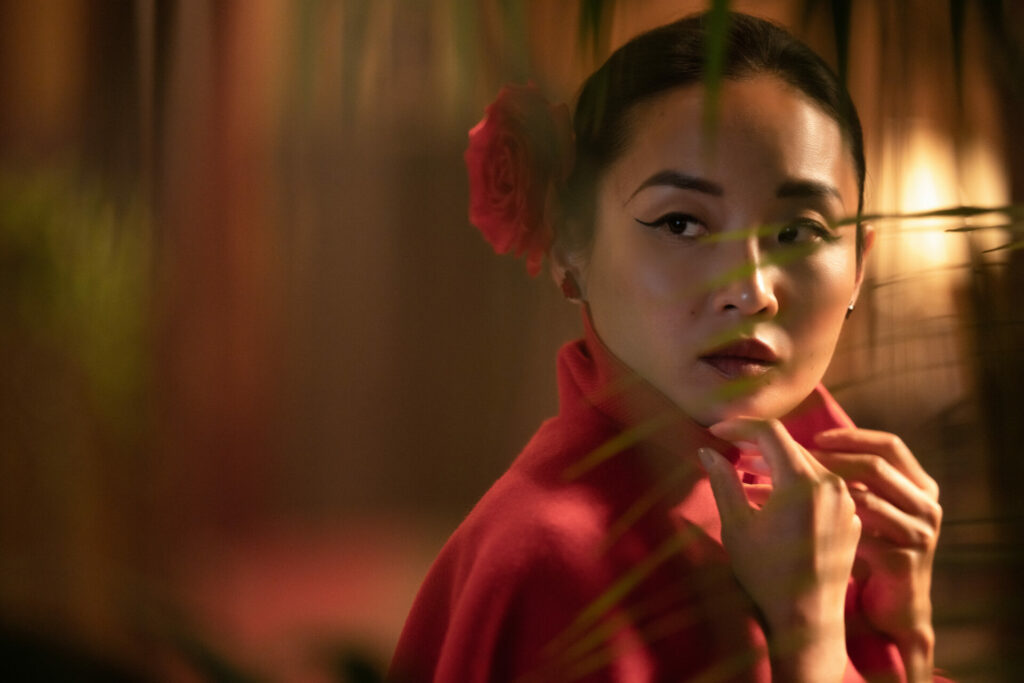
Lady Fay and Nellie’s love affair gets suppressed by the press. Do you know if this still goes on in Hollywood?
I’m sure it exists. I don’t know anyone personally. I have my… Some friends of mine – I think they might be [afraid to come out in case it impacts their careers.] But it’s not really up to me to encourage them to come out. They need to do it at their own pace. But what I can do is let them know: around me, it’s a safe space.
The film’s set a century ago, but we’re still talking about representation and identity. How can we keep people engaged in this conversation?
Through genius filmmaking. I think – and I get asked a lot about portraying a person of colour; I mean, I am a person of colour – what this film does is, it tells a story that really forces the audience to not just see, but empathise and feel the hurt and the difficulties of what it means to navigate that. If we continue to make good art, whether film or TV, the best kind is the type that moves you, keeps you thinking. We need to keep people engaged in making this change. It’s ridiculous we’re still having this struggle.
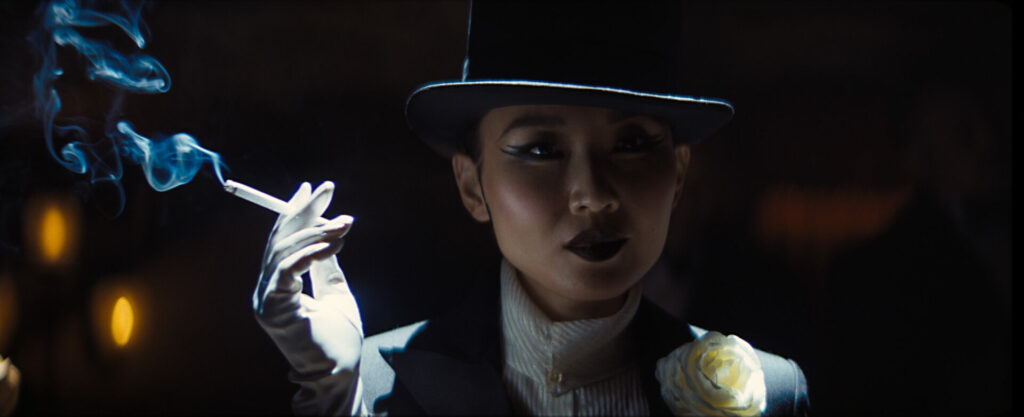
What was it like having Margot as your on-screen love interest?
Fantastic! All my castmates were so genuinely kind. Such good people, on top of their ‘no big deal’ A-list talent!
How did you build chemistry with her?
A lot of it was the choreography from La La Land choreographer Mandy Moore. You don’t get to see much of it in the final cut. But the tango was choreographed with a slow build up. [The chemistry] is there from the very beginning. Their discovery of their interest in each other, and how it comes almost to a climax before they’re interrupted by a partygoer. And then finally fulfilled in the snake scene.
I know a lot of scenes were cut, and still the film is very long [three hours and nine minutes]! Was there anything cut that elaborated on her queerness or relationship with Nellie?
At this rate, I’m already forgetting what’s been cut! I think you see a little bit more of them being together [in the uncut version]. One of the original scripts, and we never even got to film that scene, [there] was a little bit more of a graphic scene between Nellie and Lady Fay. So, yeah, it is a relationship that gets a little more engaged throughout the movie before Mandy fires May.
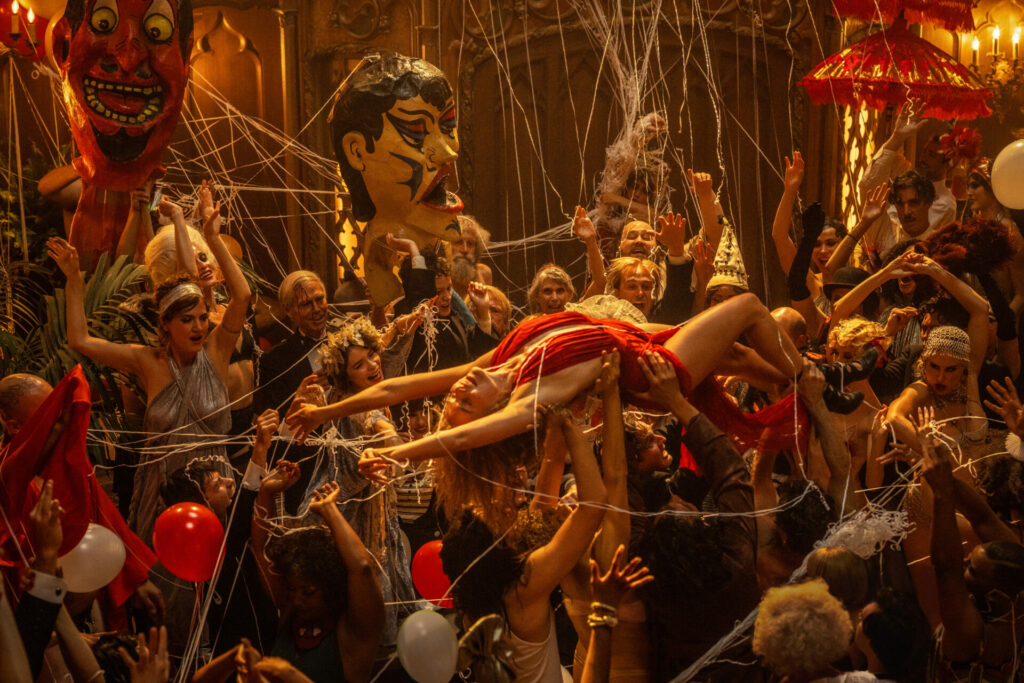
Rather than a sex scene, the one that cements their relationship involves a rattlesnake!
Isn’t that brilliant, though? ‘Stop the sex scene, and let’s put a snake in there!’ Oh, that sounded wrong.
Let’s put it another way – do you think the snake scene is a metaphor for a sex scene?
You know, I did not think of it as a sex scene – until now. [Laughs] That’s a new, but brilliant way of looking at it!
I’ve got to do something to make sense of what I saw – it was such a sensory overload! But I enjoyed it.
Yeah! I’m glad. Definitely, I needed to see it twice. I loved it so much more the second time. The first time, because it’s such a sensory overload, and also because I was involved in the making of the film, it’s hard for me to enjoy it from the audience’s perspective. But the second time you get so much more detail you might have missed the first time.
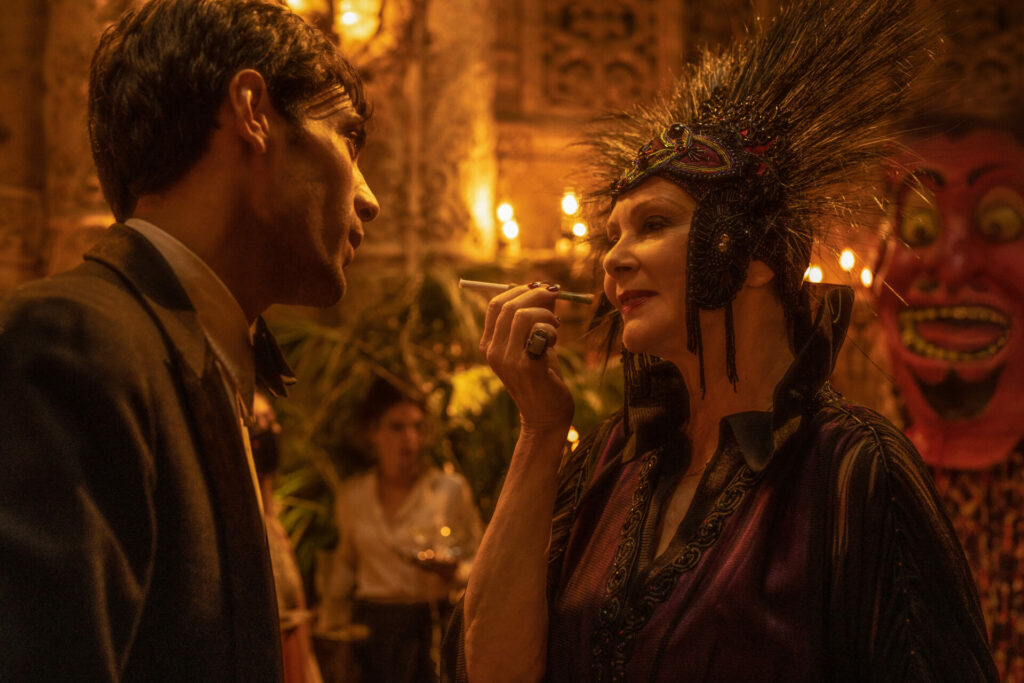
What was it like being on set with snakes?
There were three, all had different personalities. They switched them out. One got too tired; one was crazy. One was calm. One was too feisty and kept getting close to the wranglers. We all had an orientation before he took the snakes out. We had to maintain a distance of 30 or 60 feet. But Margot, being close, she actually said in another interview, she was asking where the nearest hospital was!
Do you have any friends in Hollywood with whom you have a relationship like yours and Brad Pitt’s characters in Babylon?
I have fantastic friends who are actors. And these are the people I can really speak to and confide in when times get rough. Whether it’s about discrimination in the workplace or subtle sexual and subconscious discrimination. Something Anna May Wong didn’t have back in the day was someone who looked like her to have these talks with. I’m lucky.
Babylon is in UK cinemas now
